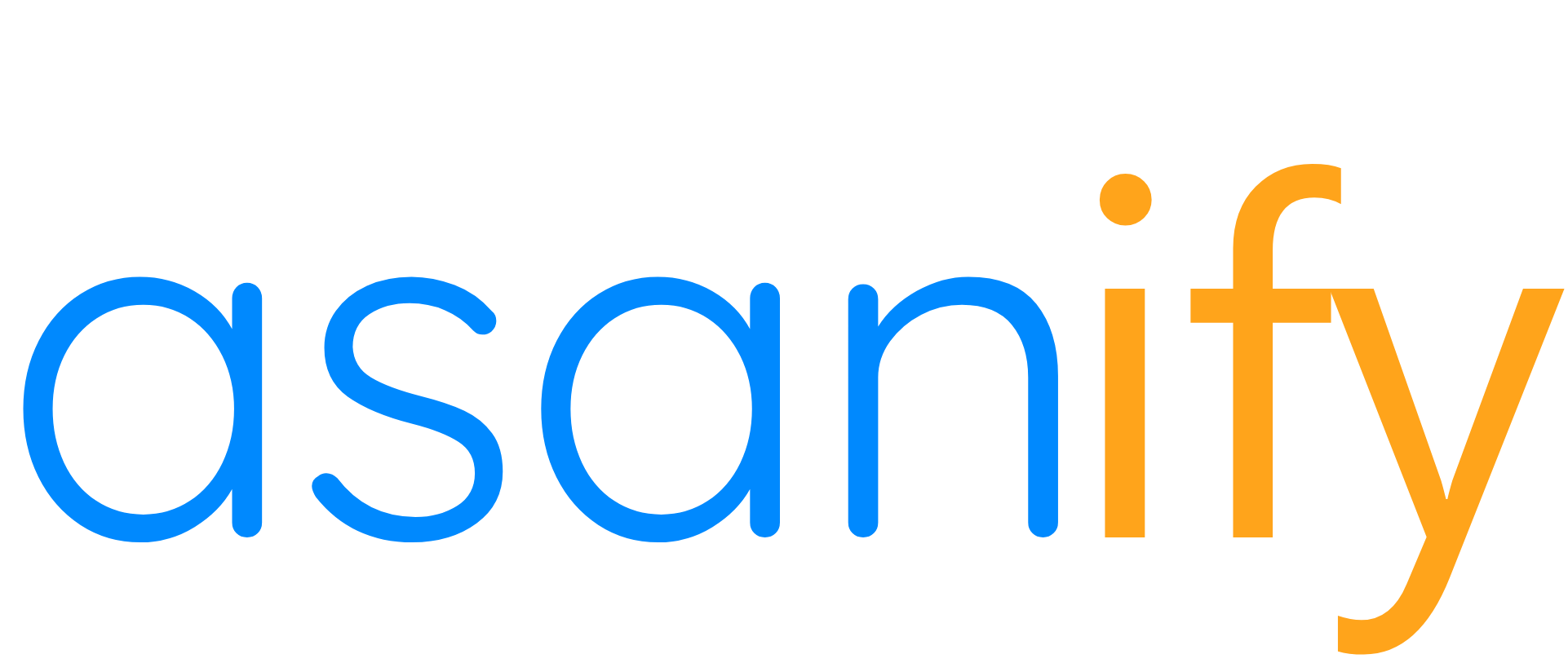Innovations in HR technology are booming at a lightning pace. If you are just starting out on leading a team as a business owner, breathing life into your dream start-up, or planning to save personnel costs, fractional HR might be the most suitable thing for you. Also known as concierge or virtual HR services, this kind of HR tech aids you in carrying out all the HR-related tasks at greatly reduced rates.
Say, you don’t have any HR professional in your team. You may not even have to hire one, thanks to fractional HR services. Dealing with various compliance-related tasks, managing employees, etc., can not be done single-handedly. Further, you will also require accurate information about changes in tax norms and smart ways to ace people management. That’s where fractional HR services step in and do the heavy work! Even for companies with a full-fledged HR department, fractional HR services can work wonders. After all, it doesn’t harm to have an external consultant who will aid your HR department. It’s your HR partner and advisor- blended into one.
In this blog, we will decode the fractional HR tech and explain every aspect about it. So, brace yourself to learn all that you need to know about this HR model that is here to make your work life simpler.
Table of Contents
- What is Fractional HR?
- What are the Scenarios Where Fractional HR Model can be an Ideal Choice for an Organization?
- Characteristics of Fractional HR Services
- How is Fractional HR Well-suited for Small Businesses?
- What is Fractional HR Leadership?
- How Much Does Fractional HR Cost?
- What are the Benefits of Fractional HR Services?
- What is a Fractional CHRO?
- What are the Services Offered by Fractional HR?
- What is the Fractional HR Manager Job Description?
- Fractional HR for Startups- How Beneficial It Is?
- What are the Challenges of Using a Fractional HR Model?
- What is Fractional Recruitment?
- What is Fractional HR Consulting?
- Fractional HR Vs. Other Alternatives
- Frequently Asked Questions
What is Fractional HR?
The news of fractional HR services is making quite a buzz in the recent times. Before we dive into its core, it’s important to bust a myth people have in their minds about fractional HR services. Virtual HR, in actuality, is far from being considered the same as HR outsourcing. There is a subtle yet important difference between the two, and we will tell you why it matters.
As the name already speaks for what it is, “fractional” HR equates to a situation when organisations engage an HR expert to aid them in carrying out employee management tasks. If you already have an in-house HR department, fractional HR professionals will serve as add-ons to your business. They will serve as an extension of your team and carry out every role that traditional HR professionals are supposed to fulfill. However, the engagement will be on a part-time basis. The best thing about having a fractional HR professional on board is that all tasks such as payroll processing, employee management, performance reviews, etc. will be done using the latest HR technology available. For companies that don’t have any HR team, this external service provider will serve as the sole point of HR consultation and employee management functions.
The most amazing aspect about virtual HR services, you wonder? Well, associating your organisation with a smart and adaptable fractional HR partner lets you avail excellent services with on-point advice. This helps you manage your expenses and overhead costs efficiently. Being an employer, it is natural that you will have to take care of several things cluttering your plate. Using HR outsourcing services will help you navigate the hard waters of payroll processing, employee attendance and leave management, compliance adherence, etc. swiftly without you even having to stress about it.
As per recent studies, companies using a fractional HR model reported an average cost savings of 25% as compared to usual, traditional HR outsourcing models.
What are the Scenarios Where Fractional HR Model can be an Ideal Choice for an Organization?
The fractional HR model can be best-suited for organizations in various scenarios, including:
1. When Small and Medium-Sized Businesses (SMBs) Start Functioning
SMBs often have limited resources and may not require a full-time HR team. Fractional HR leaders allow them to access HR expertise and services on a part-time or as-needed basis, optimizing costs while still benefiting from professional HR support.
2. During the Times of Seasonal or Project-Based Workloads
Organizations with seasonal fluctuations or project-based workloads can benefit from fractional HR services. They can scale HR support up or down as needed, ensuring that HR resources align with business demands without the commitment of hiring full-time staff.
3. When Startups and Growing Companies Begin to Conduct Business
Startups and growing companies may experience rapid changes, including hiring new employees, developing HR policies, and managing compliance requirements. Fractional HR professionals can provide strategic guidance, HR infrastructure setup, and ongoing support during critical growth phases.
4. At the Time of Specialized HR Needs
Organizations with specialized HR needs, such as talent acquisition, performance management, or compliance management, can leverage fractional HR experts with specific expertise in these areas. This ensures that HR strategies are tailored to meet the organization’s unique requirements. Being an employer, it is obvious that you will have several fronts to take care of, be it- operations, growth or product development. On top of all these, worrying about compliance deadlines and employee management is something that you won’t ever want to do. Fractional HR service providers, therefore, act as your go-to assistants working towards streamlining the way HR functions are carried out.
53% of HR executives believe that an enhanced onboarding process boosts employee engagement. And, let’s just be honest here. Being a CEO, taking care of employee engagement activities, compliance deadlines, etc., will be outright overwhelming. Therefore, having a fractional or virtual HR consultant in your team is way too crucial.
5. Requirement of Assistance to Keep Up With Compliance and Regulatory Changes
Keeping up with HR compliance and regulatory changes can be challenging for organizations. Virtual HR professionals stay updated with industry trends, laws, and regulations, helping organizations navigate compliance requirements effectively and minimize risks. A study by PWC has made an interesting revelation. According to this report, 80% of the HR leaders are of the view that advanced HR technology can significantly improve compliance with labor laws and regulations. Therefore, having fractional HR leadership supporting you is essential to stay insulated from labor law violations and penalties.
6. When Cost Optimization Becomes a Priority
For organizations looking to optimize costs without compromising on HR quality, fractional HR offers a cost-effective solution. Businesses can access professional HR services without the overhead costs associated with hiring full-time staff, such as salaries, benefits, and training expenses.
8. During the Period of a Short-term Leave of HR Professionals
In situations where organizations experience a temporary absence of HR leadership due to leaves, transitions, or restructuring, fractional HR outsourcing partners can step in as interim HR leaders to maintain continuity, provide strategic guidance, and oversee HR operations.
Characteristics of Fractional or Virtual HR Services
Fractional or Shared HR technology refers to the use of HR software and tools by fractional HR professionals or consultants to efficiently manage human resources functions on a part-time or as-needed basis. This technology plays a crucial role in streamlining HR processes, enhancing communication, and optimizing HR strategies for businesses that utilize fractional HR services. Some key aspects of fractional HR technology include:
1. The Smartest & Most Modern Fractional HR Services are Cloud-Based Solutions
Most fractional HR professionals rely on cloud-based HR software platforms that offer accessibility from anywhere, at any time. This allows them to manage HR tasks remotely and collaborate with clients seamlessly. Studies reveal that business owners are more eager to invest in a cloud-based solution because of the security that it provides. Excellent fractional HR platforms like Asanify are cloud-based solutions and help businesses stay on top of the HR and compliance game with its strong cohort of HR experts.
2. HR Management Systems (HRMS): HRMS platforms designed for small and medium-sized businesses often include features such as employee data management, payroll processing, benefits administration, time tracking, and performance management. Fractional HR professionals use these systems to centralize HR information and automate routine tasks.
3. Recruitment and Applicant Tracking: Fractional HR technology may include applicant tracking systems (ATS) that streamline the recruitment process by managing job postings, applicant profiles, candidate communication, and interview scheduling. These tools help in identifying and hiring top talent efficiently.
4. Employee Self-Service Portals: Many HR software solutions offer employee self-service portals where employees can access their personal information, request time off, view pay stubs, update contact details, and participate in performance evaluations. Fractional HR professionals leverage these portals to empower employees and reduce administrative burdens.
5. Compliance and Reporting Tools: Fractional HR technology often includes tools for managing compliance with labor laws, regulations, and industry standards. It may also provide reporting and analytics capabilities to track HR metrics and monitor employee trends.
To sum up, fractional HR technology enables HR professionals to:
- high-quality HR services efficiently
- effectively manage client needs
- drive organizational success through streamlined processes
How is Fractional HR Well-suited for Small Businesses?
Fractional HR technology is particularly well-suited for small businesses due to several key advantages it offers:
1. Cost-Effective Solutions: Small businesses often have limited budgets for hiring full-time HR staff or investing in expensive HR systems. Fractional HR technology allows them to access affordable HR solutions on a part-time or as-needed basis. This helps in reducing overhead costs while still benefiting from professional HR expertise.
2. Flexibility and Scalability: Small businesses may experience fluctuations in their HR needs, especially during periods of growth or change. Fractional HR technology provides the flexibility to scale HR services up or down according to the business’s requirements. This scalability ensures that small businesses can adapt their HR support as their workforce and operations evolve.
3. Access to Expertise: Fractional HR professionals who leverage technology bring a wealth of expertise and knowledge in various HR functions. They are often well-versed in using HR software platforms, automation tools, and best practices to optimize HR processes. This, in turn, aids them to improve compliance, and enhance employee experiences.
4. Efficient HR Management: HR technology streamlines administrative tasks, such as payroll processing, benefits administration, time tracking, and compliance management. This efficiency allows small businesses to focus on core operations and strategic initiatives.
5. Enhanced Communication and Collaboration: Many fractional HR technology solutions include communication tools, employee self-service portals, and collaboration features that facilitate seamless interaction between HR professionals, employees, and management. This improves communication, transparency, and engagement within the organization.
6. Data-Driven Decision Making: HR technology provides small businesses with access to valuable HR analytics and reporting capabilities. This data-driven approach allows businesses to track HR metrics, identify trends, monitor employee performance, and make informed decisions to support organizational goals.
Using a fractional HR model helps businesses save about 30-40% of their budget that would otherwise have been spent on hiring full-time employees.
What is Fractional HR Leadership?
Fractional HR leadership refers to the practice of engaging part-time, external HR executives, such as Chief Human Resources Officers (CHROs), to provide strategic leadership and guidance to organizations. These fractional leaders bring extensive HR expertise and experience to the table, offering valuable insights and direction without the commitment of a full-time executive role. They work collaboratively with internal HR teams and senior management to develop and execute HR strategies that align with business goals, drive organizational growth, enhance employee engagement, and ensure compliance with HR regulations. Fractional HR leadership provides companies with flexible access to top-tier HR talent, allowing them to benefit from specialized skills and strategic guidance while optimizing costs and resources.
How Much Does Fractional HR Cost?
The cost of hiring a fractional HR professional, including a fractional Chief Human Resources Officer (CHRO), can vary widely depending on several factors:
1. Experience and Expertise: More experienced and specialized professionals typically command higher rates.
2. Scope of Work: The specific tasks and responsibilities assigned to the fractional HR professional can impact the cost. For example, strategic consulting may be priced differently than ongoing operational support.
3. Duration of Engagement: Whether it’s a short-term project or a long-term retainer can influence pricing. Short-term projects may be charged at an hourly or project-based rate, while ongoing support may involve monthly or annual retainers.
4. Market Rates: Rates can also vary based on market demand, geographic location, and industry standards.
5. Additional Services: Some fractional HR providers may offer additional services such as HR technology implementation, compliance audits, or training programs, which can affect the overall cost.
As a rough estimate, hourly rates for fractional HR professionals can range from $100 to $300 or more, depending on the factors mentioned above. Monthly retainers can start from a few thousand dollars and go up significantly based on the level of expertise and services required.
It is important to evaluate your specific needs, budget constraints, and desired outcomes when considering the cost of hiring a fractional HR professional. Working closely with the provider to define expectations and deliverables can also help ensure a transparent and mutually beneficial engagement.
What are the Benefits of Fractional HR Services?
If your mind is clouded with questions and you are unable to choose among the options of hiring a full-time HR professional, outsourcing the HR functions or partnering with a fractional HR partner, it is crucial to have a look at the areas where fractional HR services stand out from the ordinary. The benefits offered by virtual or fractional HR model are insanely amazing. Let’s see what these are:
1. Brings in Flexibility to an Organization’s HR Needs
Ideal fractional HR models can bring significant flexibility to an organization by providing tailored HR solutions on a part-time or as-needed basis. This flexibility allows organizations to access professional HR expertise and support without the commitment of hiring full-time HR staff. Fractional HR professionals can scale their services up or down according to the organization’s changing needs, whether it’s during busy periods, seasonal fluctuations, or specific projects. This agility enables organizations to optimize HR resources and costs. Also, this ensures that they have the right level of HR support when required without overburdening their budget. Further, fractional HR service providers bring diverse skill sets and experiences, allowing organizations to tap into specialized HR knowledge and strategic guidance as needed, enhancing overall HR effectiveness and adaptability.
2. Aids in Cost-Savings & Managing Budget Allocation
Organizations can significantly save costs by leveraging the fractional HR model, which offers flexible and cost-effective HR solutions. Instead of hiring full-time HR staff with associated salaries, benefits, training, and overhead costs, organizations can engage fractional HR professionals on a part-time or project-based basis. This pay-as-you-go approach allows organizations to pay only for the HR services they need, when they need them, optimizing budget allocation and resource utilization. Additionally, fractional HR providers often bring expertise in multiple HR areas, reducing the need to hire separate specialists or invest in extensive training programs. By outsourcing HR functions to fractional experts, organizations can achieve cost savings while still benefiting from professional HR support, strategic guidance, and compliance expertise tailored to their specific requirements.
3. Brings in Fresher Perspective to Drive Growth
Using a fractional HR model can provide businesses with a fresher perspective to drive growth by bringing in external expertise and diverse viewpoints. Fractional HR experts often work with multiple clients across different industries, gaining insights and best practices that they can apply to new environments. This exposure to diverse challenges and solutions enables fractional HR providers to offer innovative ideas, strategies, and approaches that may not be readily available within the organization’s internal HR team. They can bring fresh perspectives on talent acquisition, performance management, employee engagement, and other HR areas, stimulating creativity and driving continuous improvement. Moreover, fractional HR professionals can act as strategic partners, offering valuable advice, market insights, and industry trends to help businesses align HR strategies with overall growth objectives. By tapping into this external perspective, businesses can leverage new ideas, optimize processes, and foster a culture of innovation to propel their growth and success.
4. Aids in Risk Mitigation
Fractional HR aids businesses in risk mitigation by providing specialized expertise in compliance, legal matters, and HR best practices. These professionals stay updated with the latest regulatory requirements, industry standards, and legal changes. All these, in turn, aid businesses navigate complex HR laws and regulations effectively. Moreover, fractional HR experts conduct thorough audits, risk assessments, and compliance reviews to identify potential areas of risk and develop strategies to mitigate them. They implement policies, procedures, and training programs to ensure employees and managers understand and adhere to legal and ethical standards, reducing the risk of costly legal disputes, penalties, and reputational damage. Therefore, by using fractional HR services, businesses can proactively address compliance challenges, minimize risks, and create a compliant and resilient HR environment.
5. Makes Quick Implementation of HRMS and Employee Onboarding a Reality
Fractional HR model facilitates quicker implementation of the HR tech and faster onboarding of employees through its flexible and specialized approach. Thanks to its agility and adaptability, virtual HR services help businesses expedite the setup and configuration of HR systems and processes. Third-party consultants bring in-depth knowledge of cloud-based HR software, applicant tracking systems (ATS), employee self-service portals, and compliance tools. This allows for rapid deployment and customization to meet the organization’s specific needs. Further, fractional HR partners can streamline the onboarding process by efficiently managing tasks such as employee data entry, document collection, training scheduling, and benefits enrollment. Also, their expertise ensures a smooth and seamless transition for new hires, reducing administrative burdens and accelerating the integration of employees into the organization.
What is a Fractional CHRO?
A Fractional CHRO (Chief Human Resource Officer), also known as, CPO (Chief People Officer) is an HR professional holding vast experience in the entire domain of talent strategization. The role of a fractional CHRO is that they offer HR leadership services on an interim, temporary or project-by-project basis. Further, they can work as one of the team members under the company leadership team or deliver HR services as an independent contractor- depending upon the unique requirements of the company engaging their services.
Hiring a fractional Chief Human Resources Officer (CHRO) can offer several benefits for organizations:
- Fractional CHROs work on a part-time basis, allowing companies to access high-level HR expertise without the full-time cost of a permanent executive.
- Organizations can scale their HR leadership based on current needs, whether it’s for a specific project, during a transition period, or to fill a temporary gap.
- Fractional CHROs bring strategic HR insights and best practices, helping businesses align their HR strategies with overall business goals.
- These professionals often have deep expertise in areas like organizational development, talent management, HR technology, and compliance, bringing valuable skills to the table.
- Being external to the organization, fractional CHROs can provide an objective viewpoint and offer unbiased recommendations for improving HR processes and initiatives.
- They often have extensive networks within the HR industry, providing access to talent, vendors, and resources that can benefit the organization.
- With a fractional CHRO handling strategic HR responsibilities, internal HR teams can focus more on day-to-day operations and employee support.
What are the Services Offered by Fractional HR?
Using a good fractional or virtual HR service provider such as Asanify, entitles you to enjoy diverse HR facilities, powered by technology. The services include:
- Payroll automation;
- Managing workforce;
- Reporting performance & analytics;
- Maintaining employee records;
- Ensuring compliances;
- Making necessary amends as per labor law updates;
- Managing employee performance reviews;
- Maintaining company HR policies;
- Administering employee benefits program;
- Tracking new candidates;
- Onboarding new hires
What is the Fractional HR Manager Job Description?
A Fractional HR Manager’s job description typically includes a range of responsibilities related to managing human resources functions on a part-time or contract basis. Let’s see how it shoukd kike:
1. Strategic HR Planning: Develop and implement HR strategies aligned with business objectives, including workforce planning, talent acquisition, retention, and succession planning.
2. Employee Relations: Manage employee relations issues, including conflict resolution, disciplinary actions, and performance management. Ensure compliance with HR policies, procedures, and legal requirements.
3. Talent Acquisition: Oversee the recruitment and selection process, including job postings, candidate screening, interviews, and onboarding. Develop and maintain recruitment strategies to attract top talent.
4. Training and Development: Coordinate employee training and development programs to enhance skills, performance, and career growth. Identify training needs and collaborate with managers to create learning opportunities.
5. Compensation and Benefits: Administer compensation and benefits programs, including salary reviews, incentive plans, health insurance, retirement benefits, and other employee perks. Ensure competitive and fair compensation practices.
6. HR Policies and Procedures: Develop, implement, and update HR policies, procedures, and employee handbooks. Communicate policies to employees and ensure compliance across the organization.
The specific duties and responsibilities of a Fractional HR Manager may vary depending on the size, industry, and needs of the organization they are serving. They often work closely with internal HR teams, executive leadership, and external partners to support HR goals and contribute to overall business success.
Fractional HR for Startups- How Beneficial It Is?
Using fractional or shared HR services is highly beneficial for startups due to several key reasons.
- Firstly, startups often operate on tight budgets, and hiring a full-time HR team can be financially burdensome. Fractional HR services offer a cost-effective solution by providing access to experienced HR professionals on a part-time or project basis, allowing startups to save on payroll costs.
- Secondly, startups experience rapid growth and evolving HR needs, making flexibility crucial. Fractional HR providers offer scalability, enabling startups to adjust the level of HR support as their business expands.
- Thirdly, startups benefit from the expertise and knowledge of fractional HR professionals who bring diverse experience from working with multiple companies and industries. This expertise helps startups navigate complex HR issues, stay compliant with regulations, and implement best practices without the need for in-house HR expertise.
To sum up, using fractional or virtual HR allows startups to focus on their core business activities, save costs, access specialized HR knowledge, and scale their HR functions according to their growth trajectory.
What are the Challenges of Using a Fractional HR Model?
The fractional or shared HR model, like any approach, comes with its own set of challenges that can be easily thwarted by choosing the right service provider. Let’s see what possible challenges you may face if a virtual HR service provider is far from being ideal:
- Limited Availability: Depending on the agreement, fractional HR consultants may have limited availability or may not be onsite full-time, which could pose challenges in terms of immediate response to HR issues or hands-on management of HR functions.
- Integration Challenges: Integrating fractional HR solution into the company’s culture and workflows may require effort and communication to ensure alignment with existing processes, policies, and organizational dynamics.
- Dependency on External Providers: Businesses relying heavily on fractional HR may face risks if the external provider’s availability or performance is compromised, emphasizing the importance of choosing reputable and reliable fractional HR partners.
- Communication and Coordination: Effective communication and coordination between fractional HR professionals, internal teams, and management are crucial to ensure seamless collaboration, clear expectations, and successful outcomes.
- Confidentiality Concerns: Sharing sensitive HR information with external providers raises confidentiality concerns, necessitating robust data security measures, confidentiality agreements, and compliance with privacy regulations.
The fact can not be denied that fractional or virtual HR model offers numerous benefits. In this tech-driven world, adapting to smart solutions like virtual HR, is the key to excellence and growth. Therefore, it is very important to evaluate your business needs carefully, assess options before deciding on a particular fractional HR solution, and establish clear communication and expectations to maximize the effectiveness of this approach.
What is Fractional Recruitment?
Fractional recruitment refers to the practice of outsourcing part of the recruitment process to external recruitment specialists or agencies on a part-time or fractional basis. Instead of hiring a full-time internal recruitment team, organizations can engage fractional recruiters to handle specific aspects of the hiring process, such as sourcing candidates, screening resumes, conducting interviews, and managing candidate communications.
Hiring fractional recruiters can be cost-effective compared to maintaining an internal recruitment team. Organizations pay for recruitment services based on the scope of work and duration of engagement, avoiding the overhead costs of salaries, benefits, and infrastructure for full-time recruiters. Fractional recruiters often have specialized expertise in sourcing, screening, and attracting candidates for specific industries, roles, or skill sets. They bring knowledge of recruitment best practices, market trends, and candidate assessment techniques to streamline the hiring process.
What is Fractional HR Consulting?
Fractional HR consulting involves engaging HR consultants or consulting firms on a part-time or fractional basis to provide strategic HR advisory services to organizations. These consultants work with companies to address specific HR challenges, develop HR strategies, and implement solutions that align with business goals. Let’s have a look at the key aspects of fractional HR consulting:
- Fractional or Virtual HR consultants offer strategic guidance to senior management and HR teams on a wide range of HR initiatives. They help organizations develop HR strategies that support business objectives, improve employee engagement, enhance organizational culture, and drive performance.
- They bring specialized expertise in areas such as talent acquisition, performance management, organizational development, employee relations, compensation and benefits, HR technology, compliance, and change management. They leverage their knowledge and experience to provide tailored solutions to HR challenges.
- Virtual HR consulting is often more cost-effective than hiring full-time HR consultants or maintaining an internal HR department. Organizations pay for consulting services based on the agreed-upon scope of work, avoiding the overhead costs of hiring full-time employees.
- Fractional or Shared HR consultants can transfer knowledge and skills to internal HR teams, providing training, coaching, and mentorship. This helps build HR capabilities within the organization and ensures sustainable HR practices over time.
Fractional HR Vs. Other Alternatives
Let’s see how fractional HR model stands out from other alternatives:
1. Fractional HR Vs. Temporary Staffing Agency
|
Parameters |
Fractional or Virtual HR |
Temporary Staffing Agency |
| Nature of Engagement | Fractional HR involves working with a third-party provider that offers HR services and consultation on a part-time or as-needed basis to provide specialized expertise, strategic guidance, and hands-on support in managing HR functions. | Temporary staffing agencies provide businesses with temporary workers or contractors to fill short-term staffing needs. |
| Scope of Services | These solutions offer a range of HR services, including HR strategy development, talent acquisition, performance management, compliance, training, benefits administration, and HR technology implementation. | They primarily focus on providing temporary workers to fill specific roles or tasks within client organizations. |
| Relationship with the organisation | They work closely with the organization as external partners or consultants, integrating into the company’s culture, processes, and workflows. | Temporary workers from staffing agencies are employed by the agency and may have limited interaction or integration with the client organization beyond fulfilling their assigned tasks. |
2. Fractional HR Vs. HR Outsourcing Model
|
Parameters |
Fractional or Virtual HR |
HR Outsourcing Model |
| Nature of Engagement | Fractional HR experts work directly with the organisation, often integrating into the company’s culture and processes. | HR outsourcing involves contracting with an external HR service provider or firm to handle specific HR functions or all HR responsibilities. |
| Scope of Services | Fractional HR professionals offer a range of HR services, including HR strategy development, talent acquisition, performance management, compliance, training, benefits administration, and HR technology implementation. | HR outsourcing providers offer comprehensive HR services tailored to the client’s needs. This can include full-service HR management, payroll processing, HRIS implementation, employee relations, legal compliance, and strategic HR consulting. |
| Level of Involvement | Fractional HR solutions work closely with the organization, providing hands-on support, strategic guidance, and expertise in specific HR areas. They collaborate with internal teams and may act as an extension of the organization’s HR department. | HR outsourcing involves delegating HR responsibilities to an external provider, which takes on a significant level of operational and administrative control. |
Frequently Asked Questions
1. What is the Fractional HR Model?
The Fractional or Virtual HR Model is a concept where businesses hire part-time HR professionals or consultants to handle specific HR functions instead of having a full-time, in-house HR department.
2. Why would a company choose the Virtual or Shared HR Model?
Companies may opt for the Fractional or Virtual HR Model to access HR expertise without the cost of a full-time HR team. It’s also beneficial for startups or small businesses that don’t require a full-time HR presence but still need HR support.
3. What services can a Virtual HR professional provide?
Fractional HR professionals can offer a range of services, including HR strategy development, policy creation, employee relations, talent acquisition, performance management, compliance, and HR technology implementation.
4. How does the Shared HR Model differ from traditional HR outsourcing?
In traditional HR outsourcing, a company contracts with an external HR firm to handle all HR functions. In the Fractional HR Model, businesses can choose specific HR functions to outsource and work with individual HR consultants or professionals.
5. What are the benefits of the Concierge HR Model?
Some benefits include cost-effectiveness, access to specialized HR expertise, flexibility to scale HR services as needed, and the ability to focus on core business functions while HR needs are managed externally.
6. Can a Virtual HR professional work remotely?
Yes, many Fractional or virtual HR professionals work remotely, providing services virtually or on-site as needed by the client.
7. How do companies find and hire Virtual HR professionals?
Companies can find Fractional HR professionals through HR consulting firms, freelance platforms, professional networks, and referrals from other businesses. Hiring typically involves assessing the professional’s expertise, experience, and fit with the company’s culture and needs.
8. Is the Fractional or Virtual HR Model suitable for all businesses?
The Fractional HR Model is more suitable for small to medium-sized businesses, startups, and organizations with fluctuating HR needs. Larger corporations may have complex HR requirements that may not be fully met through fractional arrangements alone.
9. What considerations should companies keep in mind when implementing the Concierge HR Services?
Companies should consider their specific HR needs, budget, the scope of services required, the reputation and experience of the Fractional HR professional or firm, communication channels, and legal aspects such as data protection and confidentiality agreements.
10. Can companies transition from the Virtual HR Model to an in-house HR team?
Yes, companies can transition from the Fractional HR Model to establishing an in-house HR team. They can do this as they grow and their HR needs evolve. This transition may involve hiring full-time HR staff or expanding the existing team to handle all HR functions internally.
Not to be considered as tax, legal, financial or HR advice. Regulations change over time so please consult a lawyer, accountant or Labour Law expert for specific guidance.









